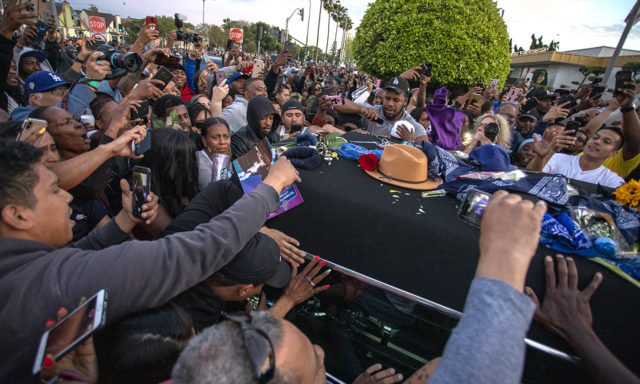By now, you or someone you know has been touched by COVID-19, the novel coronavirus. This cruel disease is burning a path through Black communities in New York, Detroit, Chicago, Milwaukee, and New Orleans to name a few. And, not only are Black people coming down with COVID-19, they are dying from it at a disproportionate rate — far outstripping their proportion in their cities.
We are told Black people are succumbing to COVID-19 because they are more likely to have more underlying health risks — diabetes, hypertension, cancer, asthma, and COPD for example. At some point officials at local, state, and national levels finally admitted that Black people’s high morbidity is a direct result of longstanding and persistent social disparities — lack of access to health care, poor housing, low-level employment, and limited access to quality food, etc. That’s the subtle way of saying racism is killing us!
Despite the acknowledgment that an unfair system is leading us to early graves, somewhere the discussion came back to our dying being our own fault. The Surgeon General, a Black man named Jerome Adams, defaulted to that old bromide… Black people are dying because they are not taking personal responsibility for their own health. He stood in front of a national audience at the daily COVID-19 press briefing and said, “Black people need to stop drinking alcohol and stop smoking.” He said that as if White people do not drink (remember the 3-martini lunch?) or smoke. He did not tell White people to stop using meth or opioids. No, his admonition was directed solely at Black people. So, in the midst of our dying, we are being shamed!
On top of all of this death and suffering, I am even more concerned about the way this moment is keeping us from one of the most sacred rituals of Black life — the homegoing — or what the rest of America calls a funeral. Black homegoings are an important culmination of our journey here on earth. They allow family and loved ones to say a formal and public good-bye to the deceased. It allows us to speak well about the departed. It allows community and friends to surround us with condolences, prayers, and love. It allows us to send our loved ones into eternity with proper reverence and ceremony.
In addition to the formal ceremony, there is the repast, and no one does a repast like Black folks. As someone who has worked most of her adult life with White colleagues, I have been to my share of “White” funerals. Some are somber. Some have a sense of humor or even whimsy, but none has had a repast like a Black repast. My White colleagues often have what might be termed a “reception.” There will be fruit and vegetable trays, perhaps a finger sandwich platter, some cookies, punch and/or coffee. However, a Black repast is a banquet. It has chicken (sometimes 3 types—baked, barbequed, and friend), ham, turkey, baked macaroni and cheese, yams, greens, green beans, potato salad, spaghetti, cornbread dressing, rolls, a wall of pies, cakes, cobblers, banana puddings, and ice tea, Kool-Aid, and coffee. This food is a result of friends, family, church and community members bringing special dishes to be shared among the grieving family.
This Black grieving ritual is being totally lost in a time of COVID-19. The requirement to stay in our homes in order to stay safe along with not having any gatherings of more than 10 people means we cannot have what we think of as a “Black” homegoing. Thus, COVID-19 is not only stealing the lives of our loved ones, it is stealing our traditions. It is forcing us to grieve alone.
When the patriarch of the famed Marsalis family, Ellis Marsalis, died last week, all I could think of is that he would be laid to rest without the benefit of that New Orleans’ staple—a second line. People would be unable to dance behind his casket to the rhythmic beat of horns and drums playing, “When the saints go marching in.” Instead, less than a dozen of his family and/or friends will assemble in a quiet service to say their good-byes. Perhaps after we come through this period, they will memorialize Mr. Marsalis but the memorial will lack the immediacy and feeling of a traditional homegoing.
Poet Amiri Baraka referred to Black people as “Blues People.” The music we created to make the nation’s most original art form contains within it a lament of our sadness and sojourn from the shores of West Africa to the canebrake and cotton fields of the Carolinas, Alabama, Mississippi and most of the South to the sharecropping farms and the institution of Jim Crow to the battle for Civil Rights. We have died for the right to be Americans. And we need the ability to mourn in our very own way.
So, I pray and pour a libation for those Black people who have departed in the wake of COVID-19 — whether as a result of the disease or the serendipity of a death during this time. I imagine glorious choirs, a rousing eulogy, smartly dressed ushers, funny anecdotes, and yes, a magnificent repast. I declare a requiem for those Blues People!



































